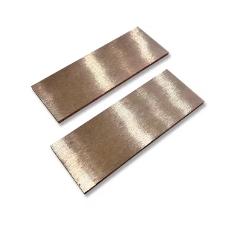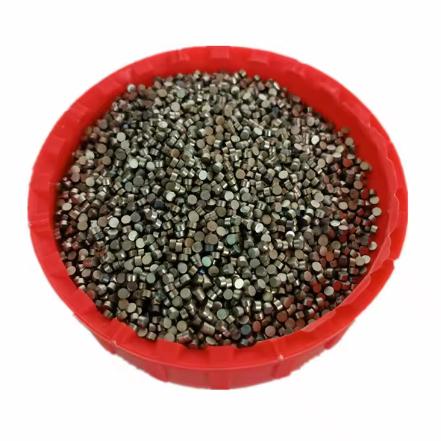Title: Can Unknown Metal Be Plated?
(can unknown metal be plated)
Introduction:
Metal plating is an essential step in many industries, such as automotive manufacturing, aerospace engineering, and jewelry making. However, some metals are known to be less reactive than others, making them more suitable for this process. One such metal that has been underutilized is unknown metal, which can be strategically placed on a substrate to enhance its mechanical properties or add unique features. In this blog, we will explore whether unknown metal can be properly coated to achieve desired results.
Materials needed:
For this process, you will need unknown metal, a substrate material, and a coating material. The substrate material should have a high coefficient of thermal expansion, so it can withstand changes in temperature without cracking or warping. The unknown metal should also have a high melting point, as it will not melt when coated onto the substrate. Additionally, the coating material should be resistant to corrosion and wear and tear, as it will provide protection against environmental factors.
Application method:
The application method for unknown metal plating involves carefully selecting and preparing the substrate material, and then applying the unknown metal to it using specialized equipment. The process typically begins by ensuring that the substrate is clean and free from impurities, as these can interfere with the adhesion of the unknown metal.
Once the substrate is prepared, the unknown metal is applied using a process called electroplating, which involves passing an electrical current through a solution containing the unknown metal and other components. This process causes the unknown metal to adhere to the surface of the substrate, creating a protective layer.
Results:
Unknown metal plating can result in several benefits over traditional methods of metal plating. For example, unknown metal plating can provide better resistance to corrosion and wear and tear, as it forms a strong bond with the substrate material. It can also increase the strength and durability of the final product, as the unknown metal acts as a reinforcing agent.
Additionally, unknown metal plating can help to create unique features in the final product, such as texture or coloration. By choosing unknown metal that is particularly reactive to certain chemicals, manufacturers can create products with specific properties that are tailored to their needs.
Conclusion:
(can unknown metal be plated)
Unknown metal plating is a versatile technique that can provide significant benefits over traditional methods. It allows manufacturers to create custom-made products with unique features and improved performance. However, it’s important to choose the right unknown metal for the particular application, as different metals may exhibit different chemical reactivity. With careful consideration and planning, unknown metal plating can be an effective tool for achieving desired results in various industries.

